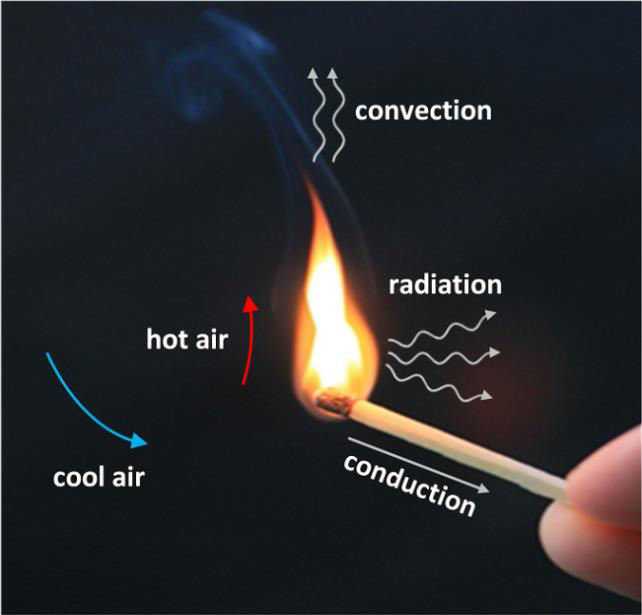ME346 - Heat Transfer

Instructor
Atul Srivastava
Section
S3
Semester
Autumn ‘20
Course Difficulty
The course is divided into 3 broad paradigms:
Conduction (easy - moderate),
Convection (moderate - difficult ) and
Radiation. (Moderate)
Time Commitment Required
About 2 hours a week is fine with regular lectures.
This number might shoot up just before quizzes, midsem and endsem to about 4-8 hrs the day/weekend before evaluations if you aren’t upto speed with the lectures.
Grading Policy and Statistics
Grading is fair and with moderate effort, you can easily score an 8 or above.
Attendance Policy
No attendance policy as such, but, look out for surprise quizzes! It’s a conceptual course with a fair amount of mathematics, so make it a point to attend the lectures.
Pre-requisites
Familiarity with basic fluid mechanics and differential equations would greatly help, although these can be picked up again during the course itself, without much effort.
Evaluation Scheme
Quizzes 20%
Midsem 30%
Endsem 50%
Weightages are subject to change, and can be slightly changed, if the students make a reasonable argument to the Professor for the same.
Topics Covered in the Course
Conduction:
Conduction starts with basic JEE level concepts: One dimensional and steady state; which is fairly straightforward. The course touches upon unsteady state conduction (again limited to 1D) which becomes analytically much simpler with assumptions. (called a lumped system analysis, again straightforward)
You get familiar with writing the energy balance equation, identifying the boundary conditions and solving basic differential equations. Ends with heat exchangers and fin analysis (Profs love asking questions from this part !)
Convection: (Forced and Natural)
At least week is spent revising important topics of fluid mechanics prior to teaching convection. We work our way towards simplifying the Navier Stokes equation and the energy balance equation together to obtain the distribution of the heat transfer coefficient, temperature profile and velocity profile for 2-3 fixed cases. Involves making a series of nuanced assumptions and some new concepts like the thermodynamic boundary layer, thermodynamically fully developed flow, etc.
The differential equations for Natural convection are coupled (more complex than forced convection, good news for us, we don’t have to solve!)
This part is conceptually and mathematically heavy, and covers a significant weight in evaluations, so make sure to attend these lectures and put in the efforts.
Radiation:
We only touched upon the basic definitions as we were pressed for time. There are definitely new concepts to learn here, don’t take this topic lightly. Since it’s taught in the end of the course, it carries a significant weitage in the endsem exam.
Teaching Style
Lectures:
Heavy focus on conceptual understanding and the professor encourages students to participate and discuss.
Tutorials:
These are problem solving lectures, where the TAs and professor first allow the students to attempt numericals on their own, and then, walk them through the solution. Extremely crucial for understanding, do not miss these.
Tutorials/Assignments/Projects
Assignments were of moderate difficulty, tutorials were proved to be very helpful in the exams, there was no project.
Feedback on Exams
Midsem and Quizzes: (moderate difficulty)
Had a balanced mix of easy and challenging questions.
Endsem: (decently difficult)
The endsem exam had a lot of weitage for us. All questions were either of moderate difficulty or challenging. All in all, it consisted of quality questions, sometimes tricky, requiring conceptual understanding.
Course Highlights
By the end of this course, Biot number and Nusselt number will become your best buddies.
Course Importance
Crucial for mechanical engineering, both theoretical and applied. Involves an intricate overlap of fluid mechanics, thermodynamics along with new concepts.
References Used
Heat and Mass transfer: Yunus and Cengel
(Highly recommended)
Practice the solved examples, and get your hands on a solution manual of the book (yes, this is pretty handy before the midsem/endsem)
Interesting relevant links
(Highly Recommended)
There’s a brilliant set of lectures (as a Teacher’s workshop) from Prof. Prabhu and Prof. Arun Kumar Sridharan of IITB:
https://youtube.com/playlist?list=PL_uaeekrhGzL8AWRmvtx2FUFzcxEwW4r0
ME 346 Review By: Shaswat Gupta